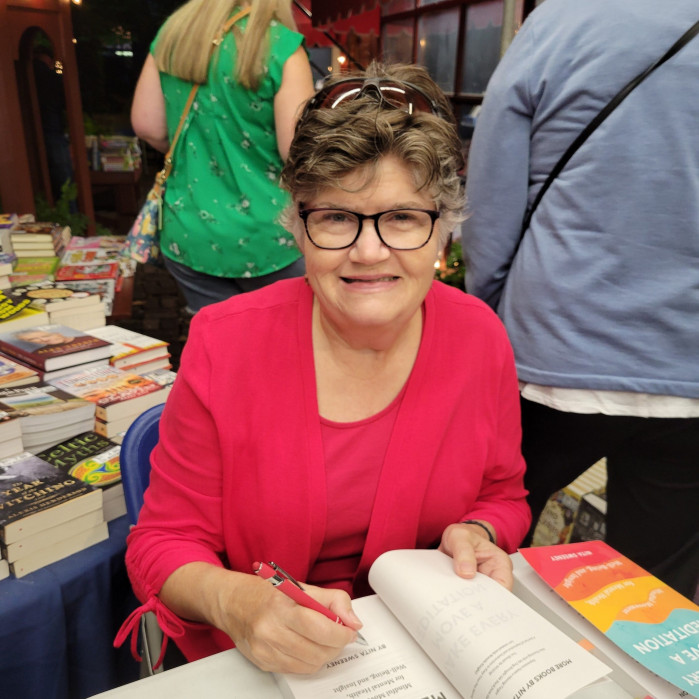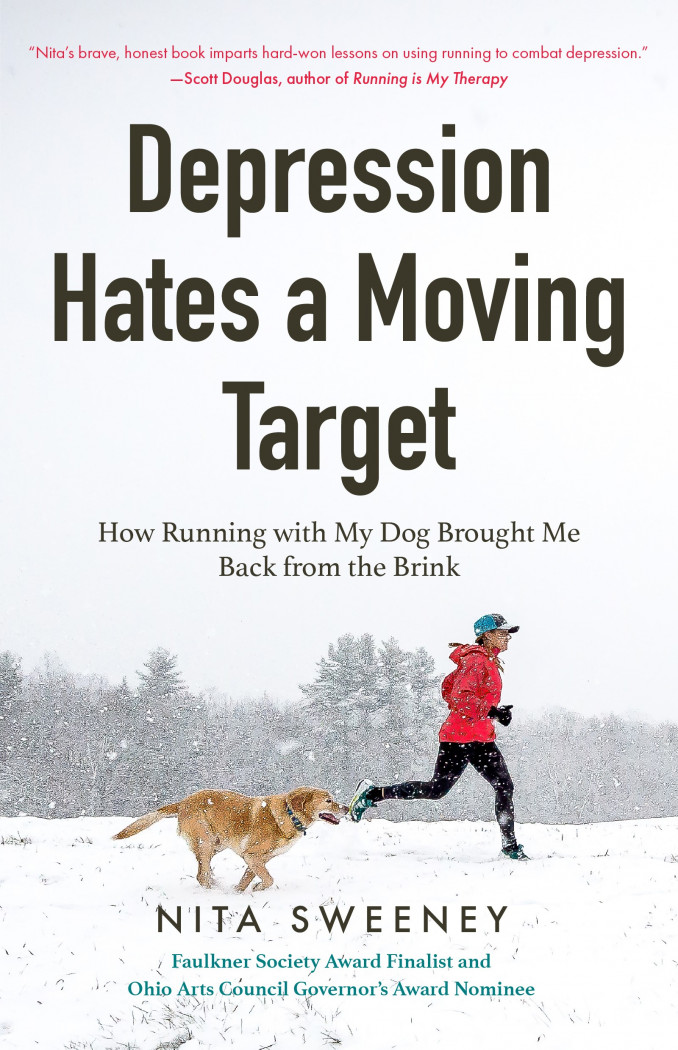"Love truth, but pardon error." - Voltaire
If my mother hadn't died, she would have been 89 on March 1st. And if she hadn't died, I might not have written Depression Hates a Moving Target: How Running with My Dog Brought Me Back from the Brink because I'm not sure I would have taken up running. Sorry for the cliffhanger, but the book tells that story.
When I posted a photo of Mom on social media, as I do nearly every year on her birthday, friends and family commented with fond memories. They weren't making it up. She could be kind, thoughtful, generous, creative, witty, and brilliant.
Mom only appears on a few pages of my running and mental health memoir, but she might be the most interesting person in the story. The year after she died, I wrote a first draft of a memoir about our relationship. I found the writing so painful that I set it aside to heal and gain perspective.
Her birthday and my reaction to the social media comments (curiosity and a bit of terror at the thought of what people who loved her might think after they read the book) led me to ponder how we can love someone so much yet also find the relationship so hard. As a writer, I reflected on how to write about difficult relationships.
Did her death grant me artistic license to tell the truth?
I've written before about Mary Karr's admonition to memoirists. Karr, author of the memoir The Liar's Club, one of the first memoirs about dysfunctional families to hit the best-seller list, has been referred to as “grande dame memoirista.” When she spoke at a nonfiction conference I attended years ago, Karr didn't mince words. "Don't make shit up."
When I wrote this memoir (and the other memoir drafts sitting in files on my computer and in boxes in our basement) I heeded Karr's words. "Don't make shit up" was my canon, my lodestar, my guiding light. I wrote with abandon while compulsively checking journals, running logs, and datebooks to ensure accuracy.
Then came the revisions where I had to decide what I really wanted to say. How could I portray my experience without making any of the people in the book, and especially my mother, look like either monsters or saints?
Here are three rules I used in both parts of the process:
1. BE BRUTAL. I wrote it all down. I used full names, actual places, true occupations. I wrote what everyone said and how it made me feel. I laughed, screamed, and cried. I put myself back in the scene and relived it on the page.
2. BE KIND. I summoned empathy. I asked myself what the other person might say if they could tell their side of the story. I asked myself if I could be wrong about what happened or why it happened and I wrote that too. While I told the story from my perspective, it's more interesting (and honest) to see all aspects. Perhaps it's my legal training or my "mediator" personality, but after the dust of the first draft had settled, I found great relief in asking these questions. It added depth to a story that might otherwise lie flat.
3. CHOP IT IN HALF. Then I cut, cut, cut. My first drafts are gargantuan creatures, unwieldy and wild. Trimming and tightening helped me see where I may have been mistaken and (I hope) allows the truth to shine through.
Original post here!


